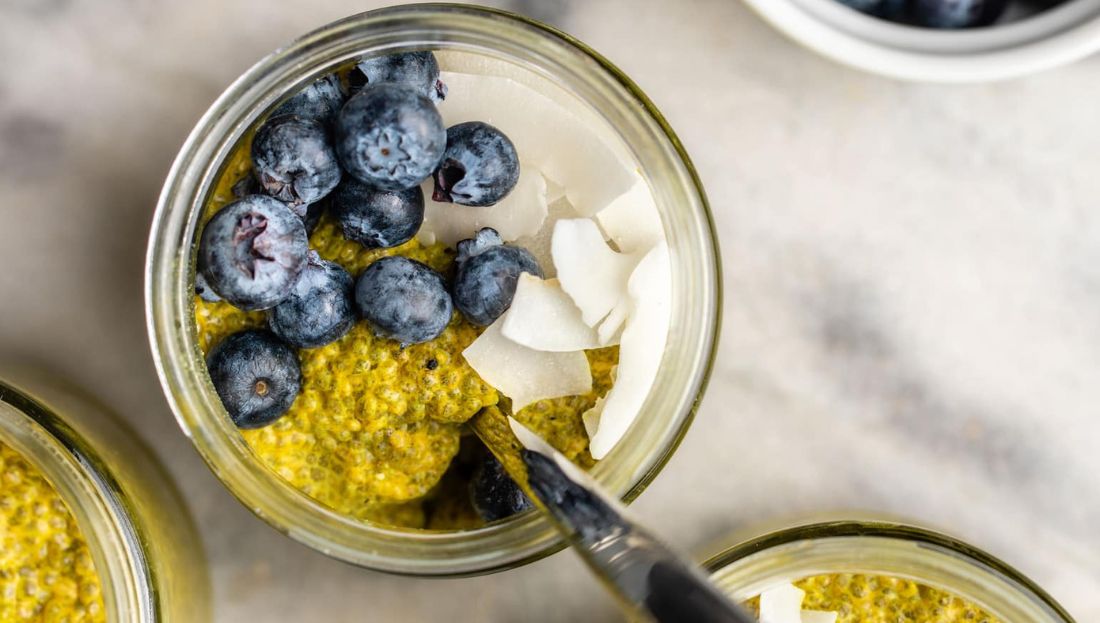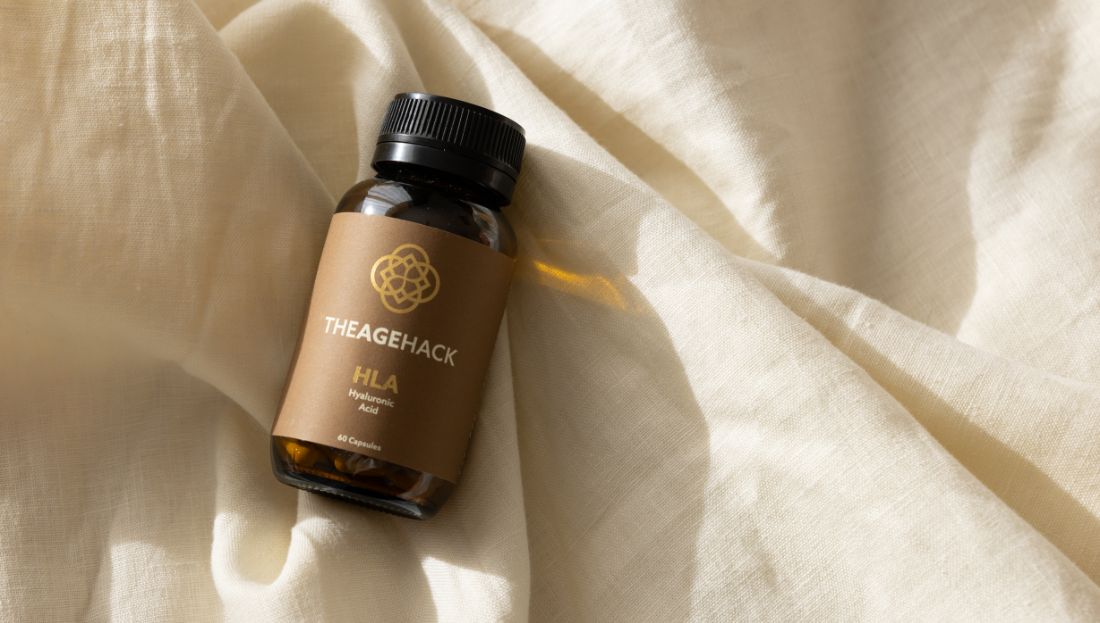In the long-lasting quest for vitality and graceful ageing, few things are as fundamental, or as overlooked, as sleep. Not just any sleep, but deeply restorative, guided by our circadian rhythm. This is the body’s internal clock that orchestrates hormone release, cellular repair, and metabolic balance across a 24-hour cycle. Understanding and optimising this rhythm is critical for longevity, cognitive function, and youthful energy.
Sleep is an active biological process, a time when one powerfully influences how they age, think, and feel. Science is catching up to the main narrative that quality sleep isn't a luxury but a necessity, intricately linked with mitochondrial health. It influences how our immune system functions, emotional regulation, and even skin regeneration.
When our circadian rhythm is supported through light exposure, nutrition, and lifestyle, the body enters a nightly state of deep repair. This blog explores how aligning your daily habits with your internal clock can not only improve your sleep but also elevate your health and longevity.
What is the Circadian Rhythm?
The circadian rhythm is a natural, internal process that regulates the sleep-wake cycle and repeats roughly every 24 hours. This master clock exists in the suprachiasmatic nucleus (SCN) of the hypothalamus, where the body registers environmental cues like light and darkness. We have receptors in our eyes that communicate with the brain that it is time to wake up and produce cortisol, or wind down and produce melatonin.
But this rhythm is more than just a sleep schedule. It regulates core physiological functions: hormone production, metabolism, immune function, and even DNA repair. Disrupting it has been linked to accelerated ageing, metabolic disorders, and diminished brain function.
Hormones and the 24-Hour Cycle
Our circadian rhythm is largely driven by the release of several hormones. Here’s a simple breakdown of this daily cycle:
Morning (6 a.m. – 9 a.m)
Cortisol peaks naturally around 30 minutes after waking. Known as the “stress hormone,” it plays a key role in alertness, blood sugar regulation, and inflammation control. Exposure to natural morning light amplifies this rise, syncing the SCN for optimal hormone balance.
Midday (12 p.m. – 2 p.m)
Serotonin levels rise with sunlight exposure and physical activity. This neurotransmitter enhances mood and acts as a precursor to melatonin. A great reason to exercise early, even if it’s just a gentle walk.
Evening (8 p.m. – 10 p.m)
Melatonin, the sleep hormone, is secreted by the pineal gland in response to darkness. It lowers body temperature and signals the body to prepare for sleep. Exposure to blue and green light from screens or LED lighting suppresses melatonin release, delaying sleep onset [3].
Night (2 a.m. – 4 a.m)
Growth hormone and cellular repair processes are at their peak during deep sleep, especially during non-REM stages. This is when the body undergoes crucial detoxification and regeneration.
How Light Influences Sleep Hormones
The SCN receives light signals via melanopsin-containing retinal ganglion cells. It’s a mouthful, but it's receptors in the eyes. Morning sunlight (especially blue light in the 480 nm range) stimulates cortisol and helps suppress melatonin, setting your day’s rhythm.
On the other hand, night-time light exposure, especially from screens, disrupts melatonin secretion and leads to circadian disruption. This is a known (and very avoidable) factor in insomnia, obesity, and mood disorders. Even dim indoor lighting (~50 lux) can suppress melatonin production by over 50%.
The Hormonal-Circadian Feedback Loop
Those days when we sleep in, then scroll on our phones as soon as we wake up? Turns out, they’re not great for our mentality or general health. When the circadian rhythm is misaligned, it triggers hormonal cascades that reinforce dysregulation:
> High evening cortisol (often from stress or late-night workouts) impairs melatonin release.
> Low morning cortisol makes it harder to wake up, causing reliance on stimulants like caffeine, which can further delay melatonin onset.
When we regularly disrupt our natural rhythm, this can impair sleep, especially the deep and REM stages. We run the risk of messing with our memory recall, metabolic function, and cellular repair. Studies show that even partial circadian misalignment (like sleeping at irregular times) alters gene expression linked to inflammation and DNA repair. Beauty sleep is far more than skin-deep!
Restorative Sleep As Therapy
A typical night of sleep cycles through non-REM and REM stages:
Non-REM (Stages 1–3) includes light sleep and deep slow-wave sleep (SWS), critical for physical recovery and immune function.
REM sleep is when dreams occur. It's essential for emotional processing, learning, and long-term memory consolidation.
When circadian rhythm or hormone balance is off, the depth and duration of these stages suffer. People may struggle to fall asleep, wake frequently, or never reach sufficient REM or deep sleep. Poor sleep isn’t only a symptom—it can be a cause of ageing at the cellular level.
Mitochondrial dysfunction, oxidative stress, and impaired NAD+ metabolism (a coenzyme vital for cellular energy and DNA repair) are associated with disrupted sleep patterns. Cortisol also affects mitochondrial function, as excess levels increase reactive oxygen species and impair ATP production. This increases the need for antioxidant protection and creates a feedback loop where stress and poor sleep reinforce cellular ageing.
Lifestyle Strategies To Optimise Sleep
There is positive news if you are looking to turn around your poor sleep habits. Fortunately, you can recalibrate your circadian rhythm and deepen your sleep quality. Try these simple yet powerful lifestyle interventions:
1. Get Morning Sunlight Within 30 Minutes of Waking
Morning light exposure ignites your internal clock and helps boost morning cortisol while suppressing residual melatonin. Aim for 10–30 minutes outdoors (depending on cloud cover) without sunglasses.
2. Exercise Earlier in the Day
Daytime physical activity improves sleep onset and increases time spent in deep sleep. Avoid intense workouts within 3 hours of bedtime, which can spike cortisol.
3. Block Blue and Green Light After Sunset
Use amber glasses or apps that reduce blue/green light on screens. Avoid bright overhead lights post-sunset, perhaps investing in some orange or red-tinted bulbs.
4. Hydration and Electrolyte Balance
Dehydration raises cortisol and disrupts sleep. Drink filtered water consistently throughout the day, and include magnesium-rich electrolytes in the evening.
5 Delicious Foods For Better Sleep
1. Tart Cherry Juice
Naturally rich in melatonin and tryptophan (and a delicious before-bed beverage). A 2012 study showed it increased sleep duration in older adults.
2. Kiwi Fruit
High in antioxidants and serotonin precursors. Clinical trials show that eating kiwi before bed improves sleep onset and quality.
3. High-Quality Protein
Protein supports tryptophan availability, an amino acid that converts to serotonin and melatonin. Include turkey, eggs, or collagen peptides.
4. Inositol-Rich Foods (e.g., citrus, cantaloupe)
Inositol supports GABA signalling, calming the nervous system and improving sleep latency. It can also support blood sugar balance, to reduce waking during the night.
5. Magnesium-Rich Foods (e.g., pumpkin seeds, leafy greens)
Magnesium enhances GABA function and supports deep sleep. Deficiency is linked to insomnia and nighttime awakenings.
NAD+ and Sleep: The Anti-Ageing Link
NAD+ (nicotinamide adenine dinucleotide) plays a vital role in mitochondrial energy production, circadian gene regulation, and sirtuin activity (longevity proteins). As we age, NAD+ levels naturally decline, leading to impairment of these processes.
Supplementing with a quality nicotinamide riboside (NR) or nicotinamide mononucleotide (NMN) has been shown to:
- Improve mitochondrial function
- Support circadian gene expression
- Enhance sleep depth and duration
- One study found that boosting NAD+ improved REM sleep and reduced oxidative stress.
Sleep For Longevity
Optimising your circadian rhythm is one of the most profound biohacks for vitality and longevity. It's not just about sleep; it's creating cellular harmony, hormonal balance, and deep restoration.
By combining light management, nutrition, targeted supplements, and daily habits, you can recalibrate your body’s master clock. This allows us to unlock more vibrant energy, clearer cognition, and youthful resilience.
References
Panda, S. et al. (2002). Circadian rhythms from flies to humans. Nature Reviews Genetics.
Leproult, R. et al. (2001). Sleep loss results in an elevation of cortisol levels the next evening. Journal of Clinical Endocrinology & Metabolism.
Gooley, J. et al. (2011). Exposure to room light before bedtime suppresses melatonin. Journal of Clinical Endocrinology & Metabolism.
Chang, A.-M. et al. (2015). Evening use of light-emitting eReaders affects sleep, circadian timing, and next-morning alertness. PNAS.
Higuchi, S. et al. (2005). Influence of light at night on melatonin suppression in humans. Journal of Occupational Health.
Archer, S.N. et al. (2014). Mistimed sleep disrupts circadian regulation of the human transcriptome. PNAS.
Grimaldi, D. et al. (2019). Effects of circadian disruption on energy metabolism and insulin sensitivity. The Lancet Diabetes & Endocrinology.
Pigeon, W.R. et al. (2012). Tart cherry juice improves sleep in older adults. Journal of Medicinal Food.
Lin, H.-H. et al. (2011). Kiwifruit improves sleep onset and efficiency in adults. Asia Pacific Journal of Clinical Nutrition.





